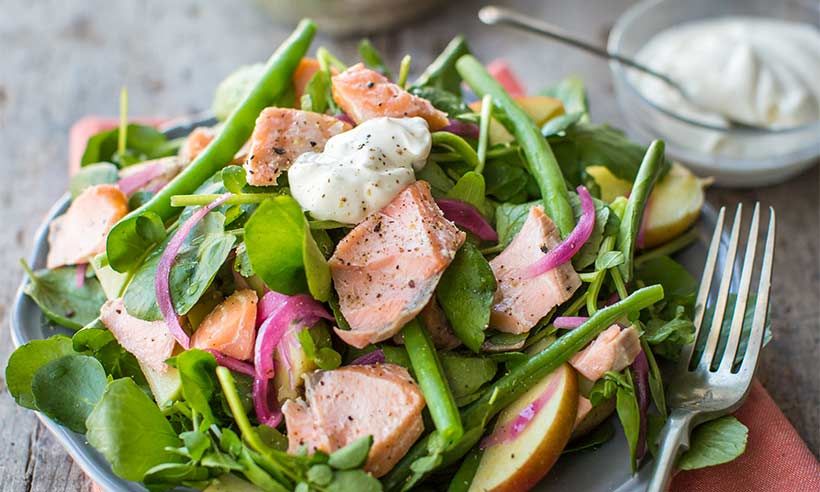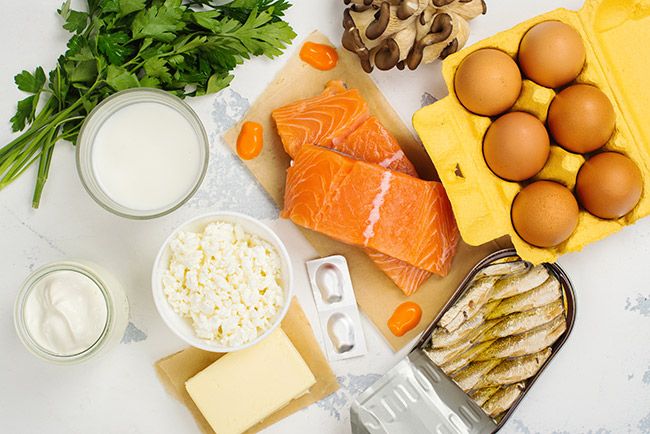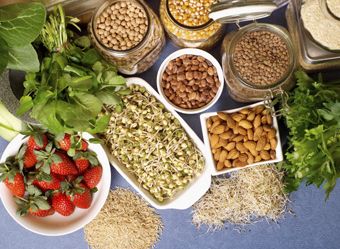Navigating through perimenopause, a phase often conflated with menopause, is vital for women approaching this significant life stage. Perimenopause, the transition leading up to menopause (marked by 12 consecutive months without a period), presents a spectrum of symptoms and experiences that vary widely among individuals.
These can include hot flashes, mood swings, irregular periods, vaginal dryness, and weight gain. Interestingly, dietary modifications can be a powerful tool in managing these symptoms, thanks to the close relationship between gut health and menopausal changes.
Here's a detailed guide to five key dietary elements that can support health and well-being during perimenopause:
Eat the rainbow
A study in 2021 underscored the benefits of a plant-based diet, linking it to fewer hot flashes. Embracing a variety of fruits and vegetables, known colloquially as 'eating the rainbow,' is not just a cliché but a health imperative.
This approach ensures a wide spectrum of nutrients and is particularly beneficial for gut health.
When cooking, try to incorporate at least six plant-based ingredients, including vegetables, herbs, and spices, along with your choice of carbs or proteins. This not only offers a range of nutrients but also contributes significantly to daily fibre intake.
READ: I’m a Beauty Editor in menopause. These 9 daily habits keep my skin glowing
Load up on protein
The transition through perimenopause often results in decreased lean muscle mass and increased body fat.
A study highlighted that increasing daily protein intake can help counter these changes by managing appetite, potentially reducing body fat, improving cholesterol levels, and maintaining muscle mass.
Protein is also vital for regulating blood sugar levels, thus helping to mitigate energy fluctuations typical in menopause. Optimal sources include fish, lean meats, tofu, beans, eggs, nuts, seeds, oats, chickpeas, and lentils.
More calcium
With an increased risk of osteoporosis during perimenopause, calcium intake becomes crucial. Calcium and vitamin D-rich foods are essential for bone and muscle health.
Calcium sources extend beyond dairy products to include sardines, fortified cereals, plant-based milks, and leafy greens.
Additionally, vitamin D, necessary for calcium absorption, can be sourced from eggs, oily fish, mushrooms, and sunlight.
READ: Davina McCall reveals which ‘specific workouts’ are key to helping menopause
Get friendly with fatty acids
Omega-3 Fatty Acids: Contrary to the negative portrayal of fats in many diets, they are essential for hormone production and the absorption of vitamins A, D, E, and K. A 2018 study suggested that omega-3 fatty acids could help ease symptoms of depression during menopause. Foods rich in omega-3s, such as oily fish, nuts, seeds, and avocados, can manage perimenopausal symptoms like night sweats and mood swings and support brain health, skin, and hair.
Load up on fibre
The importance of fibre in perimenopausal health cannot be overstated. A 2023 study from The University of Nottingham showed the link between fibre and various health benefits, including a healthier gut, reduced risk of ovarian cancer, and alleviation of depression symptoms.
Fibre-rich foods slow down blood sugar release, helping to prevent metabolic conditions and insulin resistance, common during perimenopause. Aim for a daily intake of 30g of fibre from diverse sources for optimal health benefits.
Faye James is an accredited nutritionist, member of the Australian Menopause Society and author of The Menopause Diet













